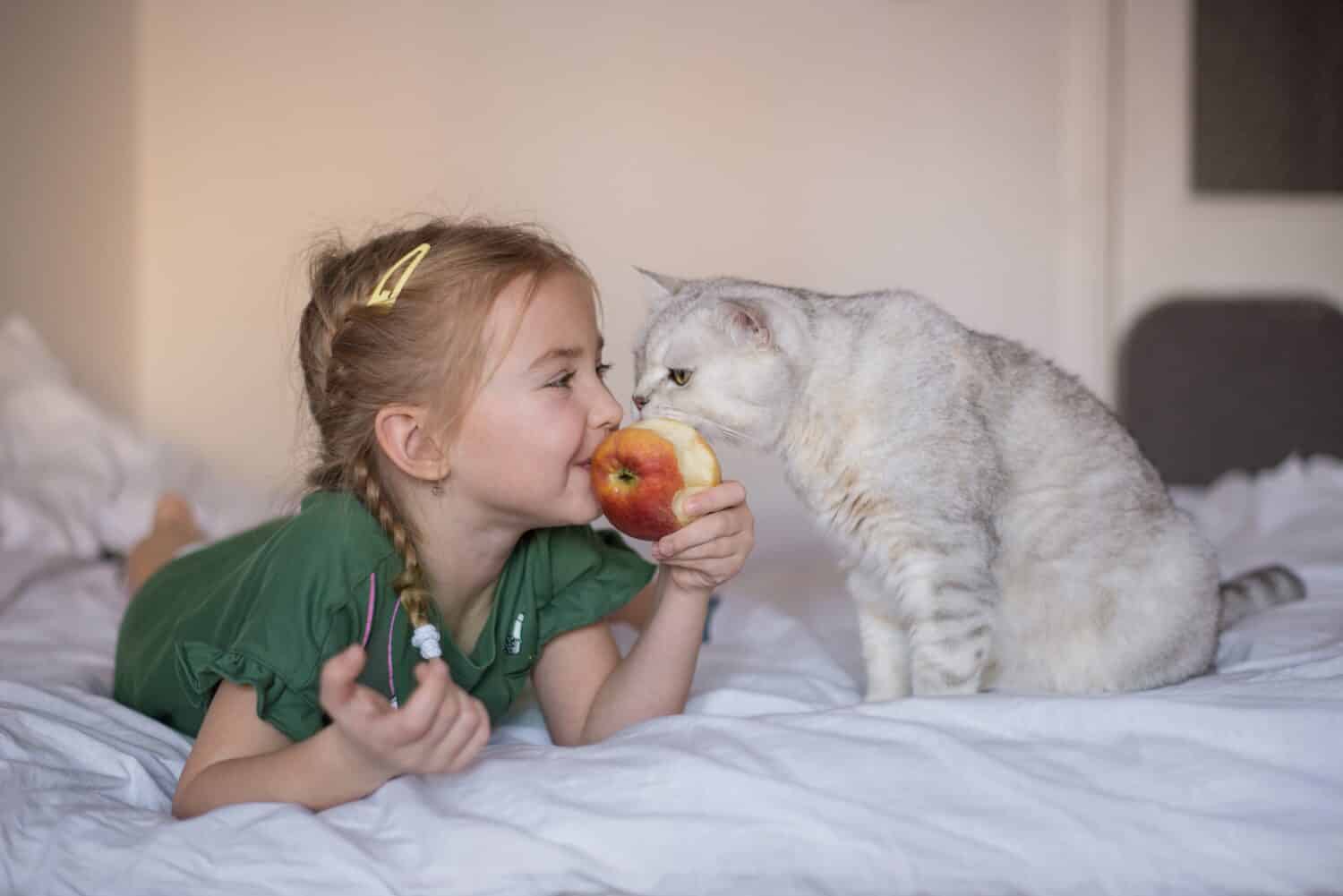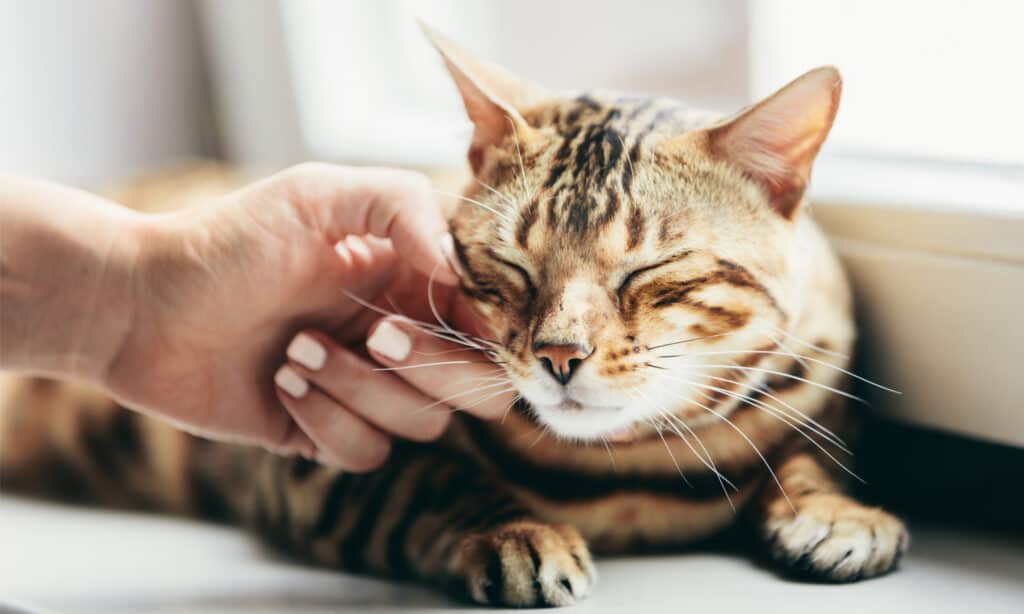Apples are a balanced and nutritious snack that many of us keep on hand. Packed with fiber and vitamins, an apple a day keeps the doctor away. Apples have become a staple in most diets, but can our feline friends enjoy their delicious health benefits as well?
Apples are generally safe for cats to eat, but there are a few health risks to be aware of. Let’s discuss everything you need to know about apples for cats!
Can Cats Eat Apples?

Cats can safely enjoy a thin slice of apple flesh from time to time.
©Skarynka Alena/Shutterstock.com
Yes, the occasional bite of apple flesh is safe for cats to eat. A thin slice of apple should cause no harm to your feline friend, as long as it is offered as an occasional treat. Cats are obligate carnivores that do not require fruit in their diet. Offering too much can increase their risk of diet related complications. Even the natural sugar content in apples can lead to GI upset for our feline friends. It’s important to limit their intake when it comes to any fruit snacks.
Do Apples Offer Any Health Benefits to Cats?
An apple a day may keep the doctor away, but does it keep the vet away as well? Apples are jam packed with nutrients that are beneficial in human diets, ranging from essential vitamins to polyphenols. Apples are known to support everything from digestive health to cardiovascular health. However, these health benefits do not extend to felines.
As we mentioned above, cats are obligate carnivores. This means they rely on protein from animal tissue to survive. A balanced diet in cats is very different compared to ours. They do not gain any nutritional benefit from apples. Your cat should find all the nutrients they need in a high quality cat food.
3 Things to Know Before Giving Your Cat Apples

Cats are obligate carnivores, meaning they get all of their essential nutrients from animal tissues.
©iStock.com/NiseriN
Before you give your cat a bite of your apple, be sure to follow these precautionary steps!
1. They Should Only Eat Apple Flesh
While the skin of an apple is not toxic to cats, we suggest removing the skin before offering your cat a slice. The skin of an apple can stick to the roof of your cat’s mouth or cling between their teeth, and this could be uncomfortable for your cat.
2. Remove the Apple Seeds
Always be sure that the apple slice is free of any apple seeds, which contain small traces of cyanide. This chemical is highly toxic to cats. The sharp seeds can also be irritating to your cat’s esophagus and intestinal tract if ingested.
3. Dispose of the Apple Stem
Just like apple seeds, apple stems also contain dangerous amounts of cyanide that can poison your feline friend. For this reason, always keep apple stems away from your little one. If you keep your apples in a fruit bowl that your cat has access to, then remove the stems first. You never want your kitty to sneak into your apple stash and help herself.
Can Cats Eat Cooked Apples?
A small serving of cooked apples is safe for cats to eat as long as the apples are not seasoned. Many apple bakes contain toppings ranging from cinnamon to caramel, both of which are not healthy for cats to eat. So, while a plain cooked apple is safe for cats, an apple bake with multiple ingredients is not.
Can Cats Eat Apple Sauce?
Most forms of apple sauce are not safe for cats to eat due to their high sugar content. However, offering a natural applesauce that does not contain sugar is okay.
Can Cats Drink Apple Juice?
Similar to apple sauce, most store-bought apple juices contain large amounts of sugar. While sugary juice is not toxic to cats, it could lead to an upset stomach. In most cases, it’s best to keep fruit juice away from your feline family member.
My Cat Ate an Apple Seed or Stem – What Should I Do?
As we discussed above, apple stems and apple seeds contain a toxic substance known as cyanide. Cyanide makes it impossible for the red blood cells to absorb oxygen properly. This can lead to fatal respiratory distress in some cases. Due to the potential for fatal toxicity, contact your vet immediately if your cat eats an apple stem or seed.
You can also reach out to the ASPCA Animal Poison Control Center if you are unsure whether or not your cat needs vet care after ingesting toxic apple components. You can reach them at the following number: (888) 426-4435. They are open 24/7, 365 days a year.
The photo featured at the top of this post is © Caterina Trimarchi/Shutterstock.com
Thank you for reading! Have some feedback for us? Contact the AZ Animals editorial team.






